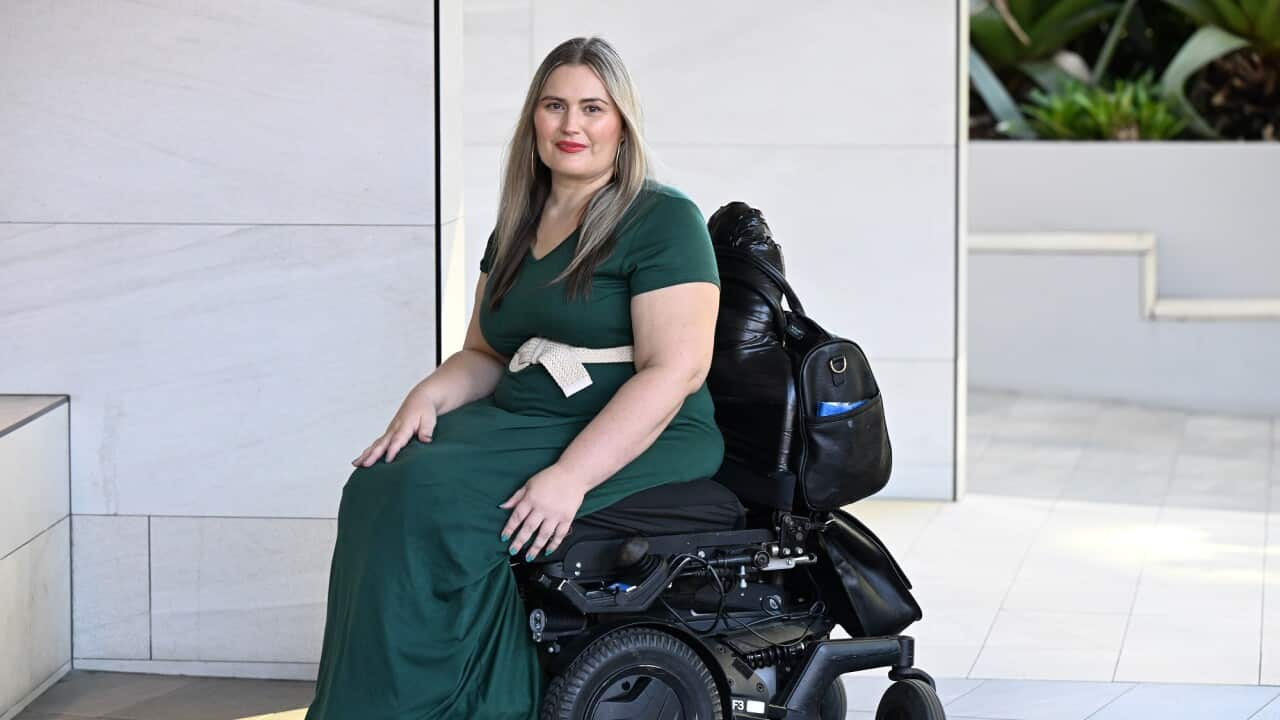TRANSCRIPT
"Over the past six years, the idea of a National Disability Insurance Scheme has found a place in our nation's hearts."
In 2013, the creation of the NDIS brought tears to then Prime Minister Julia Gillard's eyes.
But today, it's distress from the disability community, including Marayke Jonkers, President of People with Disability Australia.
"You call me right (now) watching the bill pass of (and) wiping, tears of mascara off my face at the last second."
The Senate has passed the Getting the NDIS Back on Track bill - aimed at reducing the soaring costs of the scheme.
From the government's point of view, the scheme has become financially unsustainable.
NDIS Minister Bill Shorten says that needs to be addressed.
"The aim is to be able to assure people on the Scheme it's there for the future that it's fair, equitable and transparent."
But Ms Jonkers believes the changes are a backward step for people with a disability.
"It's really, really emotional, because we fought for decades to have the NDIS, to have those rights, to have the freedom, to have the choice and control to live a life the same as every other Australian."
Currently costing about $46 billion a year, the scheme was expected to surpass the cost of Medicare within two years unless there were changes.
The legislation introduces a growth cap of 8 per cent, currently sitting at 14 per cent, with the goal to reduce the cost of the NDIS by 14.4 billion dollars over four years.
Greens disability spokesperson Jordan Steele-John says the funding reduction is a broken promise by Labor.
"The Labor Party pledged no cut to the NDIS. The bill that has just passed enables $14.4 billion to be stripped out of the scheme."
The savings will be found by basing the scheme on need rather than diagnosis, addressing fraud in the system, and defining what supports those on the NDIS can access with their plans.
Ms Jonkers says removing autonomy from the scheme will have a serious impact on many people with a disability.
"There are people who have said today they're going to end their lives because this takes away the good life they've had for 10 years."
The lack of choice and discretion that will come with a defined list of supports is the biggest concern for many people with a disability.
Currently, if you're on the NDIS you create a plan, which allocates funding to be used to reach agreed goals.
And there's a bit of flexibility in that.
Under the new bill, there will be a defined list of what is and isn't allowed - although the specifics are yet to be finalised.
Ms Jonkers says defining the supports could end up costing more.
"There's a yes list and a no list. Sometimes, if something is broken on my wheelchair, we will go to Bunnings and buy parts and have a friend fix it who's technologically minded, and it's a few dollars. That costs a whole lot more (if you are) spending 1000s of dollars for a registered provider to come."
A sticking point with the legislation was getting the states to agree.
Although they're now on board, the changes to the scheme will mean the state and territory governments will have to plug the gap in services - providing what's known as foundational supports.
Mr Shorten says those supports will plug a gap currently in the system.
"The other aim we have is that we're building a support for Australians with disability who don't need the NDIS. But there is something there for them so they can have fulfilling lives."
They include things like advocacy, information and employment supports, along with home and community supports like help with shopping or cleaning, and services for adults with a psychosocial disability.
The foundational supports will also capture children with developmental concerns that don't fit into the NDIS.
Ms Jonkers says they may help fill a gap, but there is still little detail to the plan.
"600,000 Australians are NDIS participants. For everybody else, there isn't any support, that went away when the NDIS came in. Foundational supports can be there, in theory, for all Australians, if you've broken an ankle, you're going through cancer treatment, (or) for some reason, you need a bit of help around the place. The issue is they're not defined clearly, the states haven't agreed on what they're going to be. There's no time frame, and they're not tested."
There are still a lot of unknowns with the bill.
Minister Shorten says passing the legislation is just the starting point.
"There's no one day where this Scheme gets better. But the passing of the legislation is basically the construction of the scaffolding, which will allow us to go and co-design new needs assessment tools, new budget tools. It will allow us to conclude, you know, resolve our consultation with people with disability about a list of what you can spend money on, and a list of what you can't spend money on. This will always be a work in progress, but as we've seen, we're committed to making sure the scheme's here for the future."
Whilst Mark Pietsch from Physical Disability Australia says the lack of information is part of the concern for people with a disability.
"There's a lot of concern in the NDIS space - and a lot of its uncertainty. I'm sure at this time, especially given that so few details have been shared with the community in regards to what the future looks like with the NDIS."
The bill will now return to the House of Representatives, where it is expected to pass easily with the amendments.
Then, the work will continue to finalise the details.
The government says that process will involve working with people with disability and the sector "to further refine what support needs assessments for NDIS participants look like".













